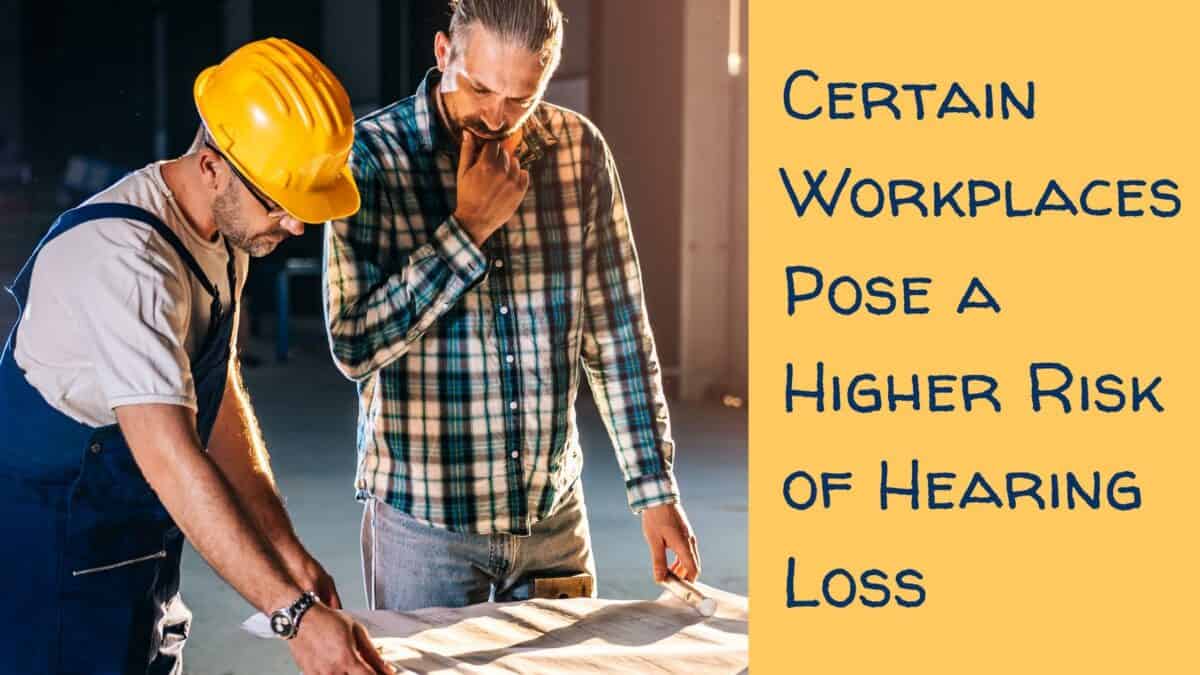When it comes to hearing loss, not all workplaces are created equal. You might not be surprised to learn that some places of business pose a much higher risk of hearing loss, but it’s sometimes difficult to discern which poses a higher risk than others. A recent study confirmed that three industries do pose a much higher risk of hearing loss—construction, agriculture, and music. Let’s take a moment to understand how workplace hearing damage occurs, as well as what makes each of these industries particularly risky. Advanced protection is necessary for workers in these three industries, and those who work in other industries that pose a relatively lower risk can also benefit from protection at work.
Construction, Agriculture, and Music
What makes these three industries unique? When compared with other industries, such as finance, workers in these three industries demonstrate higher rates of hearing loss indeed.
Taking music first, you might not be surprised at the finding. Those who produce loud sounds or who work in the industries surrounded by those sounds will experience a higher degree of noise exposure than those who work in quieter professions. However, the music that can lead to hearing loss might surprise you. Classical musicians who work in quieter settings can be at risk of hearing loss along with those who play rock, hip hop, and dance music. The key to understanding that relationship has to do with the combination of factors leading to hearing loss. Not only is the volume of sound in play, but the duration of exposure matters, too. Classical musicians who practice for a long period of time with an instrument close to their ears, such as a violin, can be at a high risk of hearing loss at work.
Construction is another industry that might not surprise you when it comes to hearing loss. The loud machines used at construction sites can cause hearing loss in a short period of time. Whether these include jackhammers, power saws, or even hand drills, a full day of work with these tools can cause hearing damage throughout a shift.
One of the more puzzling industries is agricultural work. Though your mind might go to a single person walking through rows of produce, quietly picking each fruit or vegetable by hand, today’s agricultural industry is heavily mechanized. These machines emit damaging sounds, often even more threatening to hearing ability than lawnmowers, weed whackers, and snow blowers. An extended time driving tractors and other farm equipment can be enough to permanently damage hearing if a worker is not wearing the necessary protection.
Protective Measures
Taking the appropriate protective measures is essential to your hearing health if you work in one of these industries. One of the first things to do is to talk with your manager or supervisor about the form of protection that will serve you best. There may be protocols already in place that you can follow to make sure you’re getting the right help.
In addition, you can take matters into your own hands if you have a suspicion that company management isn’t protecting your hearing as you need. Beginning with a decibel reading, you can get a sense of the noise level at work. Free apps are available for smartphones to get a general idea, but you might want to get a more precise measurement to make sure you are wearing enough protection. After you take an average of the decibel readings for a particular task, you can find out how long you can take part in that activity before you are at risk of hearing damage.
Hearing protection comes in many forms, but even a basic pair of disposable foam earplugs are likely to give you 10-15 decibels of noise attenuation. For many jobs that will be enough to get your ears into a safe place for a full shift. If your workplace is noisier, you might need to wear noise-canceling earmuffs or custom-fitted ear molds that block out more of the harmful sound.
Don’t take risks when it comes to your hearing health at work. Your ears will thank you for many years to come if you get serious about hearing protection today!


